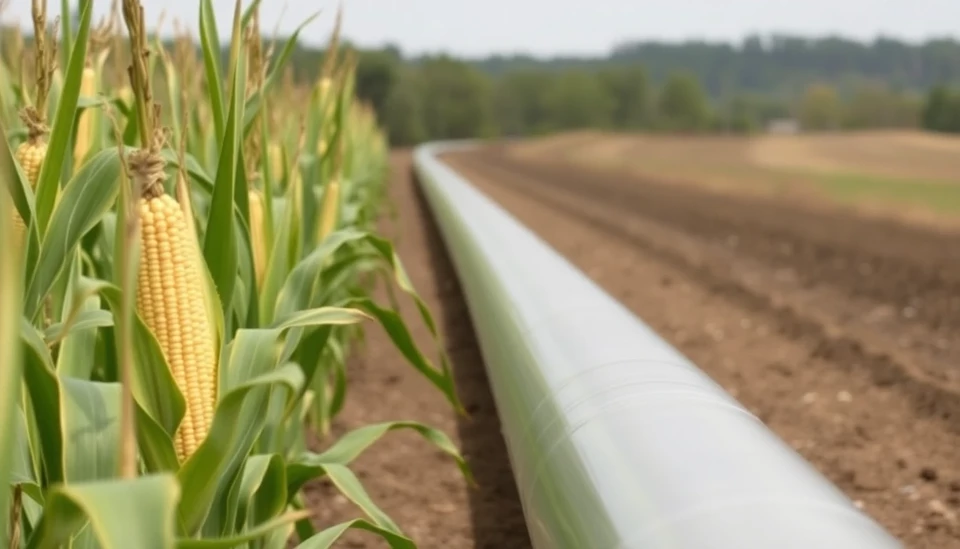
A heated debate is unfolding in a significant Midwestern corn state as voters prepare to weigh in on a divisive pipeline law that has sparked passionate opinions among residents. The legislation, which governs the construction and operation of oil and natural gas pipelines, will be featured on the ballot, making it a focal point of the upcoming elections.
Supporters of the law argue that it is essential for economic development and job creation. They contend that expanding pipeline infrastructure is crucial for enhancing energy security and bolstering the state's economy, particularly in the agriculture and energy sectors. Advocates emphasize that improved transportation of energy resources can lead to lower prices for consumers and increased market opportunities for local farmers.
On the other hand, opponents of the pipeline law are staunchly against the measure, citing environmental concerns and potential risks to public health. Critics argue that the construction of new pipelines could threaten delicate ecosystems and water sources, especially in a state like this one, where agriculture plays a pivotal role in the economy. They express fears about the long-term impact of oil spills and pipeline leaks on farmland, which could have devastating consequences for corn production and the livelihoods of farmers.
The contention surrounding the law has led to a burgeoning grassroots movement, with activists organizing rallies and disseminating information to educate voters on the implications of the vote. Many grassroots organizations have taken to social media to rally support for their cause, amplifying messages both for and against the law.
Political analysts note that this pipeline law could serve as a litmus test for broader public sentiment regarding energy policy and environmental protection at a time when climate change is at the forefront of national discourse. The outcome of the vote will be closely watched, as it could influence policy decisions not only in the state but also across the Midwest region.
As the election date draws closer, candidates are already starting to align themselves with either side of the issue, making it a hot topic on the campaign trail. Those in favor of the law are emphasizing economic benefits in a bid to win over undecided voters, while opponents are drawing attention to the potential environmental hazards associated with expanded pipeline infrastructure.
With early voting underway and significant turnout expected, voters are encouraged to educate themselves on the facts surrounding the pipeline law. Community forums, public debates, and informational sessions have been organized to facilitate discussion among residents.
In a state where agriculture intersects profoundly with energy production, the decision on this pipeline law could have far-reaching consequences. As voters prepare to cast their ballots, the stakes could not be higher for both proponents and opponents of the legislation.
The outcome of this vote will not only impact the immediate landscape of the state’s energy policies but will also reflect the prevailing tensions between economic growth and environmental stewardship in the context of 21st-century challenges.
#PipelineVote #MidwestPolitics #EnergyPolicy #EnvironmentalConcerns #Agriculture #CornState
Author: Megan Clarke




